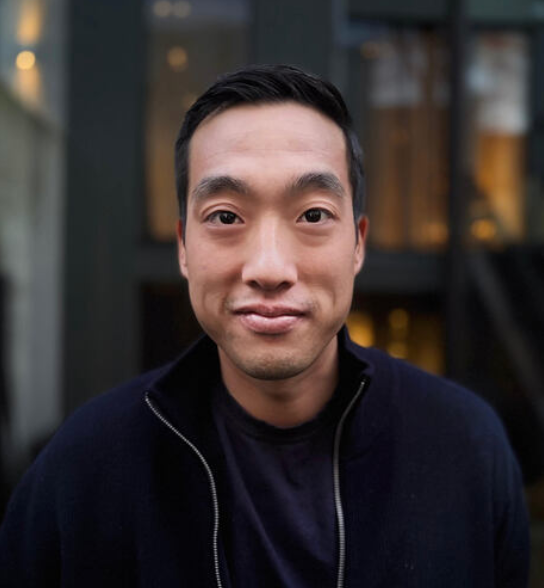Life at Samsara
Samsara’s new generation of engineers is shaping the future of sustainable transport
May 14, 2025

Get the latest from Samsara
Subscribe nowWhen Ethan Wood first applied for an internship at Samsara, he was looking for more than just a job. With a background in computer science and a strong interest in sustainability, he wanted to work with technology that solves real-world problems. Almost three years later, he’s doing exactly that.
As a software engineer on Samsara’s sustainability team, Ethan develops solutions to help commercial fleets improve fuel efficiency and transition to electric vehicles (EVs). In an industry where transport, logistics, and construction contribute significantly to global emissions, his work directly supports businesses looking to operate more sustainably.
"I get to help build a platform that improves the efficiency of commercial vehicles and fleets," he explains. "Part of that involves features like fuel efficiency and eco-driving. But I also do a lot of work on developing software to support electric vehicles and other low-carbon fuels as well."
Ethan’s work is part of Samsara’s Connected Operations Platform, a solution used by businesses and organisations that power the global economy. The sector as a whole is undergoing a seismic digital transformation, replacing manual and paper-based processes with real-time solutions powered by data.
Samsara is digitising an entire industry
Whether it's fleets of lorries, delivery vans or passenger transit, the technology provides real-time insights to make them safer, more efficient, and more sustainable. For instance, by using AI and real-time telematics, companies can optimise routes, improve vehicle performance, and reduce their carbon footprint.
For example, Delifresh – which offers next-day food delivery to the hospitality and events industry in the UK – has reduced redeliveries by 70% with Samsara’s AI-driven insights. As a result, it now does fewer journeys, which has resulted in a reduced environmental impact as it seeks to hit its sustainability targets.
It’s also using Samsara’s platform to help it go paperless – yet another benefit of digital transformation.
For Ethan, being part of this huge project to digitise an entire industry was a major reason why he accepted the job. "All our work is directly linked to the real world – things like making our roads safer, improving fuel efficiency, reducing CO2 emissions, and transitioning to EVs," he says.
Before joining full-time, Ethan completed a 10-week internship with Samsara while finishing his Integrated Master’s in Computer Science at University College London (UCL). Even at this early stage, he knew Samsara was the right fit.
"The application process was simple and I remember that the recruiter was really responsive. The coding challenges were interesting and not your standard LeetCode questions, which led to a broader conversation about engineering and the real-world impact of technology. By the end, I knew this was a place where I’d be challenged and could make a difference," he says.
But it wasn’t until he met the Samsara team and other engineers that he finally made up his mind. “They seemed to be people I’d really enjoy working with. For me, it wasn’t just about joining a company. It was about finding a place where I could build something and grow," he says.
Life as a Samsara engineer
Since Ethan joined Samsara he’s seen firsthand how engineering shaped the way businesses transition to more sustainable practices.
"The engineers I work with are some of the best in the industry. Everyone is genuinely interested in software engineering and trying to build the best products possible. They’re motivated to push Samsara to be the best company that it can be."
And that drive – that motivation – has clearly rubbed off on Ethan as well.
"I’ve had great career development opportunities, like mentoring an intern and leading an engineering project," he says. “I’ve been working across multiple projects, including a public charging station overlay, which will allow fleets to view real-time charger availability and supports private charging stations, enabling onsite providers to share data on charging status and progress.
“But the most significant project has been CARB CTC, the California Air Resources Board Clean Truck Check. It automates emissions data collection and reporting to ensure vehicles meet regulatory standards. I’ve led the development of the real-time reporting component and helped turn it from a prototype into a fully available product over the past year.
"As you can see, there’s a lot of focus on personal growth as engineers and how to solve even bigger problems."
With businesses constantly looking to make their operations safer, more efficient and more sustainable, there are plenty of opportunities for professional growth.
"There’s still so much to learn. Our engineering stack is complex, and each project brings new challenges. And knowing that I’m making such a positive impact in the world of physical operations gives me huge personal and professional satisfaction," he says.
Get the latest from Samsara
Subscribe now















